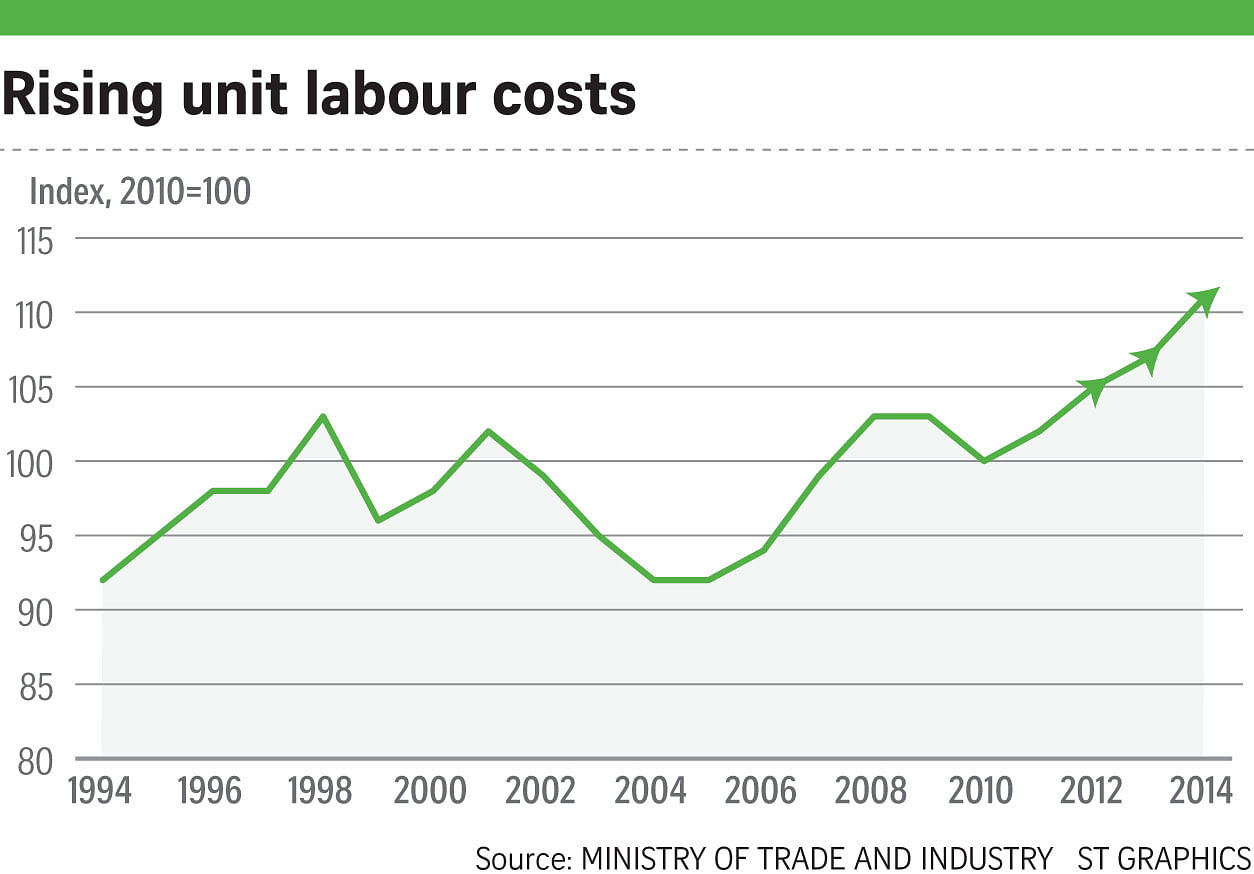Rising salaries have been the main driver behind Singapore's mounting labour costs, according to a new study by the Ministry of Trade and Industry (MTI).
This factor, coupled with flagging labour productivity, could hit cost competitiveness. Pay rises will be sustainable in the long term only if labour productivity grows in tandem, MTI concluded.
The study, which was released yesterday alongside the third-quarter Economic Survey of Singapore, examined key drivers behind the rise in unit labour costs here.
Overall unit labour costs in Singapore rose an average of 1.9 per cent per year from 2004 to last year, compared with a 0.1 per cent annual decline in the preceding decade.
The pace of increase accelerated to 2.7 per cent annually in the four years following the global financial crisis, from 2010 to last year. Labour productivity grew by just 0.3 per cent per year over this period.

The bulk of the increase in unit labour costs was driven by a rise in remuneration per worker, rather than other labour-related costs such as foreign worker levies and recruitment costs, the study found.
The tight labour market will continue to drive up wages, MTI noted.
This means Singapore must "press on" with its productivity drive.
"It is only by raising productivity that we will be able to mitigate the impact of wage cost increases and remain competitive," it said.
"Over the longer term, raising productivity is also the key to sustaining wage growth for Singaporeans."
A separate study released yesterday found one of Spring Singapore's key financial assistance schemes for small and medium-sized enterprises has had a positive impact on the revenue of firms.
About 1,200 firms completed 1,904 projects under the Capability Development Grant scheme between 2005 and 2012.
The study found that firms' revenues were 9.3 per cent higher on average, after embarking on projects under the scheme. Productivity improvement projects had the largest impact on revenue, followed by technology innovation projects.


